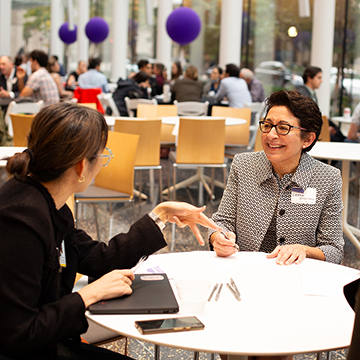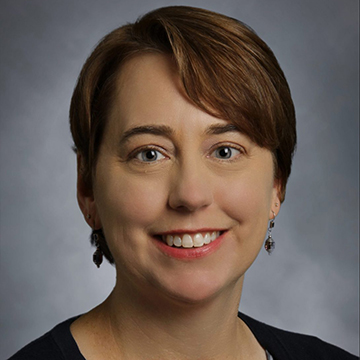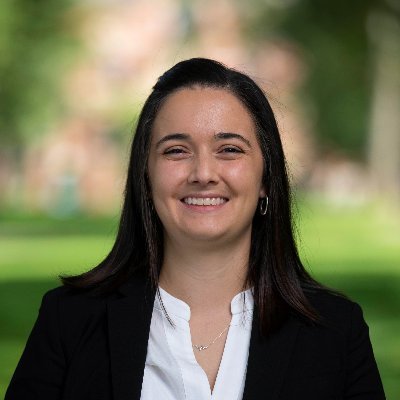K Day Provides Insight, Inspiration to Early Career Investigators
The way we discuss work-life balance doesn’t seem to be working so well, says David Victorson, PhD, professor of Medical Social Sciences at the Feinberg School of Medicine.
“We spend a lot of time managing projects, managing teams, managing people, and managing time,” Victorson told a crowd of early career investigators during the annual Chicagoland K Day event, held this year at Northwestern University and led by the Northwestern University Clinical and Translational Sciences (NUCATS) Institute KL2 Program. “While it’s important to manage all of those things, managing one’s mood and emotions with self-compassion is by far the most important management job we’ll ever have.”
During his keynote presentation, Victorson explored the notion that the way we talk about “work-life balance” often sets an unrealistic expectation of keeping different roles in harmonious equilibrium.
“Using ‘work-life rhythm’ may be a more realistic — and self-compassionate — aspiration,” he says. “Rhythm allows for different beats, notes, and solos to crescendo and decrescendo in and out, more in line with the everchanging ebbs and flows of our lives.”

Events like K-Day are important because they help early-career investigators build near-peer networks. These types of citywide events also help to solidify the partnership between the three Chicagoland NIH NCATS-funded KL2 Programs. ”
More than 60 early career faculty and postdoctoral fellows from Northwestern University, the University of Illinois at Chicago, University of Chicago, Rush, and Loyola attended Victorson’s talk as part of the annual K Day event, which featured a pair of plenary discussions and small group sessions designed to maximize interaction and shared learning experiences.
The opening presentation was given by Adam Goodman, PhD, director of the Northwestern Center for Leadership, a clinical professor at the McCormick School of Engineering and Applied Science, and an instructor of Higher Education Administration and Policy. Goodman presented on mentor mapping and the role mentees can play in creating dialogue with their mentor. He advised mentees to arrive at meetings with a clear agenda, avoid yes/no questions, and try to get their mentors to tell stories about their experiences as a way to create space for dialogue.
Research Career Development (K) Awards from the National Institutes of Health enable scientists with diverse backgrounds to enhance their careers in biomedical research. Individual K awards can also have positive effects on an investigator’s publication record and subsequent receipt of future NIH grants, like an R01.
My biggest takeaway was to give yourself grace; the science will always be there. I also particularly enjoyed getting amazing words of wisdom and support during the small group discussions.”

“My biggest takeaway was to give yourself grace; the science will always be there,” says Kristine Zimmermann, PhD, MPH, assistant professor of Community Health Sciences at the University of Illinois at Chicago. “I also particularly enjoyed getting amazing words of wisdom and support during the small group discussions.”
Zimmerman is a KL2 scholar and public health researcher committed to advancing evidence-based practice in rural community and clinical settings via community-engaged research. Her long-term goal is to improve the translation of evidence-based practice in rural communities with a focus on increasing physical activity in rural, pregnant persons.
“Events like K-Day are important because they help early-career investigators build near-peer networks,” says Leena Sharma, MD, the Chang-Lee Professor of Preventive Rheumatology and KL2 director at the NUCATS Institute. “These types of citywide events also help to solidify the partnership between the three Chicagoland NIH NCATS-funded KL2 Programs."
Individuals working toward a translational K award (or comparable) and those already supported by a translational K award explored some of the next steps in their careers toward becoming independent investigators.
Chicagoland K Day — which alternates leadership between Chicago’s three CTSA hubs — benefits scholars in several ways by providing protected time for conversation and brainstorming around application for and execution of K awards. It also creates space for individuals planning to apply for or who already have K awards to receive mentorship from individuals whom they may not otherwise connect.

I felt like the event facilitated invaluable opportunities to network with peers at a common stage in their careers, thus opening the door to build new relationships and potential collaborations.”
“I felt like the event facilitated invaluable opportunities to network with peers at a common stage in their careers, thus opening the door to build new relationships and potential collaborations,” says Kelli Scott, PhD, assistant professor in the Department of Medical Social Sciences and core faculty member of Northwestern’s Center for Dissemination and Implementation Science. “Another element that I really appreciated was everyone’s willingness to be vulnerable and to normalize the joys and challenges that come with pursuing a research career.”
Scott is finishing year three of a K23 award funded by the National Institute on Drug Abuse (NIDA K23DA050729) focused on enhancing the implementation of measurement-based care in community opioid treatment programs in the Chicagoland area. Her research focuses on using implementation science to enhance evidence-based practice scale up in community behavioral healthcare settings.
“As a result of my preliminary work on my K, I recently received an RM1 award from NIDA as MPI (in collaboration with the University of Pittsburgh and RTI International) that will focus on implementing measurement-based care in opioid treatment programs across the state of Pennsylvania,” says Scott.
Following the presentations and small group sessions, K Day attendees took part in a networking reception.
“It was amazing to see that both Northwestern and the broader Chicago community have such a robust group of thoughtful and impactful early career researchers who share common interests and challenges,” says Scott. “Attending K Day really highlighted the value of extending my network to include folks at other institutions who may be pursuing Ks or other grant mechanisms as early career scientists, and it gave me the space to begin building new connections and collaborations.”
K Day is supported, in part, by the National Institutes of Health's National Center for Advancing Translational Sciences, Grant Numbers KL2TR001424, KL2TR002387, and KL2TR002002. The content is solely the responsibility of the authors and does not necessarily represent the official views of the National Institutes of Health.
Written by Roger Anderson




